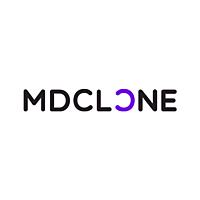Description

CA Test Data Manager

TESTINT
Comprehensive Overview: CA Test Data Manager vs TESTINT
CA Test Data Manager (TDM) and TESTINT are tools designed to optimize the process of managing test data within software development and testing environments. Here’s a comprehensive overview of each, considering their primary functions, target markets, market share, user base, and differentiating factors:
CA Test Data Manager
a) Primary Functions and Target Markets:
-
Primary Functions:
- Test Data Generation: CA Test Data Manager provides synthetic test data generation capabilities, allowing users to create realistic and privacy-compliant test data that mimics production environments.
- Data Masking: It offers robust data masking to ensure sensitive data is protected while retaining usability for testing purposes.
- Data Subsetting and Virtualization: The tool helps in creating subsets of large databases for testing as well as virtualizing test data environments to save storage and improve accessibility.
- Test Data Provisioning: Facilitates quick and efficient test data provisioning to minimize delays in testing cycles.
-
Target Markets:
- Large enterprises across sectors like finance, healthcare, telecommunications, and retail that need comprehensive testing solutions.
- Businesses with complex IT environments and significant volumes of data.
b) Market Share and User Base:
- CA Test Data Manager traditionally targets large organizations and may not have as broad a market share in smaller enterprises compared to lighter, more agile, and cost-effective solutions.
- Its user base primarily includes QA teams, data architects, and IT departments within larger corporations that require robust data management and compliance.
c) Key Differentiating Factors:
- CA Test Data Manager is known for its comprehensive nature and enterprise-grade functionality, making it particularly suited for large-scale organizations.
- Strong integration capabilities with other DevOps tools and environments.
- Extensive support for compliance and data protection regulations due to advanced data masking features.
TESTINT
a) Primary Functions and Target Markets:
-
Primary Functions:
- Test Automation: TESTINT focuses on enhancing the automation of test scripts, streamlining the testing process, and improving efficiency.
- Performance and Functional Testing: Offers solutions for both performance and functional testing across multiple platforms.
- Real-Time Analytics: Provides robust analytics to give insights into the testing processes and outcomes.
-
Target Markets:
- Companies looking for enhanced automation in their testing cycles.
- Businesses that require real-time analytics to quickly adapt and make informed decisions during testing.
b) Market Share and User Base:
- TESTINT might cater to a broader spectrum, including startups and medium-sized businesses, due to potentially lighter infrastructure requirements and ease of use.
- Its user base often consists of software development teams and QA professionals in diverse industries looking to improve speed and efficiency in testing.
c) Key Differentiating Factors:
- Emphasis on automation and real-time feedback during the testing process.
- User-friendly interface and ease of deployment make it appealing to a wider range of businesses, including smaller organizations.
- Its flexibility and adaptability to various environments and constraints contribute to its appeal among businesses with dynamic testing needs.
Comparison
- Market Share: CA Test Data Manager likely has a stronger presence in large enterprises, whereas TESTINT appeals to a broader range due to flexibility.
- User Base: CA TDM focuses on data-intensive environments requiring strict compliance, while TESTINT serves organizations prioritizing automation and efficiency in testing.
- Differentiating Factors: The intricate data management and compliance capabilities of CA TDM set it apart, whereas TESTINT is distinguished by its test automation and real-time analytics.
Both tools are valuable depending on the organization’s specific needs, the scale of operations, and the complexity of their testing environments.
Contact Info

Year founded :
Not Available
Not Available
Not Available
Not Available
Not Available

Year founded :
Not Available
Not Available
Not Available
Not Available
Not Available
Feature Similarity Breakdown: CA Test Data Manager, TESTINT
As of my last update, CA Test Data Manager and TESTINT are tools used for test data management within software testing processes. To provide a comprehensive feature similarity breakdown between these products, I'll summarize the core features they may have in common, compare their user interfaces, and highlight any unique features.
a) Core Features Commonly Shared
-
Data Subsetting:
- Both tools aim to extract a relevant subset of production data for testing purposes, ensuring efficiency and reduced storage requirements.
-
Data Masking:
- Each product typically provides data masking capabilities to obfuscate sensitive information, ensuring compliance with regulations like GDPR.
-
Data Generation:
- They offer synthetic data generation to create test data that meet specific criteria without using actual production data.
-
Integration Support:
- Both tools are designed to integrate with various databases and testing environments, supporting seamless workflows.
-
Version Control:
- They provide options for versioning test data, allowing testers to maintain consistent test data sets across multiple test runs.
b) Comparison of User Interfaces
-
CA Test Data Manager:
- The user interface of CA Test Data Manager is typically comprehensive, with a more traditional and detailed layout. It often involves multiple dashboards and panes for different functionalities, which cater to advanced configurations.
- CA TDM generally emphasizes a robust set of features that may require a steeper learning curve but offer extensive control and customization options for experienced users.
-
TESTINT:
- TESTINT may have a more streamlined interface focusing on usability and simplicity. Often designed to be intuitive, it caters to users who favor ease of use over configuration depth.
- Its design might prioritize quick navigation and actionability, making it suitable for rapid test data management without in-depth setups.
c) Unique Features
-
CA Test Data Manager:
- Fast Data Masking: CA TDM might offer advanced data profiling and masking techniques that are optimized for performance, suited for very large datasets.
- Detailed Audit Log: Extensive logging of data changes and actions for better auditability.
- Wide Range of Connectors: May provide broader support for different types of databases and legacy systems compared to TESTINT.
-
TESTINT:
- AI-Powered Data Insights: TESTINT may have features that leverage AI to provide insights into test data patterns, usage, and optimization automatically.
- Simplified Collaboration Tools: TESTINT might offer built-in collaboration features that facilitate easy sharing of test data sets among teams with annotations and version comments.
Conclusion
While both CA Test Data Manager and TESTINT share core functionalities crucial for effective test data management, they cater to different user preferences and needs. CA Test Data Manager tends to focus on robust functionality and customization, making it favorable for environments requiring detailed control. In contrast, TESTINT possibly emphasizes user-friendliness and innovative features like AI insights, appealing to teams that value quick setup and ease of use.
Features

Not Available

Not Available
Best Fit Use Cases: CA Test Data Manager, TESTINT
CA Test Data Manager (TDM) and TESTINT are tools used for managing and integrating test data in software development and testing processes. These tools are designed to address challenges related to test data management, including data compliance, data quality, and test coverage. Here’s how they fit across different businesses and projects:
a) For what types of businesses or projects is CA Test Data Manager the best choice?
-
Enterprises with Complex IT Infrastructures:
- Businesses with large, complex systems that have diverse data sources and structures benefit significantly from CA TDM. This includes industries like banking, telecommunications, and insurance, where data security and test coverage are critical.
-
Regulated Industries:
- Industries such as healthcare and financial services, where compliance with regulations like GDPR or HIPAA is mandatory, can leverage CA TDM’s ability to generate synthetic test data and mask sensitive information to ensure data privacy and compliance.
-
Projects with Extensive Testing Needs:
- CA TDM is ideal for projects that require extensive functional, performance, and integration testing because it can create and manage large volumes of test data while ensuring data quality and relevance.
-
Agile and DevOps Environments:
- In fast-paced development settings, the ability to quickly generate and refresh test data without dependencies on production databases can enhance continuous testing and integration processes.
b) In what scenarios would TESTINT be the preferred option?
-
Automation of Test Data Management:
- When projects need to automate the provisioning of test data in CI/CD pipelines, TESTINT can streamline and integrate test processes, making it a chosen tool for organizations focused on reducing manual test data management processes.
-
Integration Testing Across Complex Systems:
- TESTINT is particularly useful in scenarios requiring seamless data provisioning for integration testing. Companies that need to perform large-scale integration testing across multiple systems will find TESTINT's capabilities beneficial.
-
Cross-Platform Data Integration:
- Situations that require the synchronization and integration of test data across varied platforms can benefit from TESTINT’s robust integration features, ensuring consistent data quality and integrity.
d) How do these products cater to different industry verticals or company sizes?
- Industry Verticals:
- Financial Services: Both products help in maintaining data privacy, ensuring compliance, and performing risk-free testing through data masking and synthetic data generation.
- Healthcare: They support data privacy and HIPAA compliance, crucial for testing healthcare applications.
- Retail and eCommerce: These tools can handle high data volume and variability, important for testing transaction-heavy systems.
- Company Sizes:
- Large Enterprises: With their complex IT ecosystems and regulatory obligations, large enterprises benefit from the comprehensive features of CA TDM and TESTINT, enabling robust test data management and compliance.
- Mid-Sized Companies: These businesses can use these tools to enhance testing efficiency and ensure data compliance at a more moderate scale, leveraging scalability as their needs grow.
- Small Businesses: Although smaller companies may have limited use cases for enterprise-grade tools, in scenarios where they are operating in highly regulated industries or aiming for rapid growth, they can use these tools to ensure efficient and compliant testing processes.
Overall, CA Test Data Manager and TESTINT are powerful solutions designed to streamline test data management across a wide array of business contexts, catering to specific needs related to compliance, data integration, and testing efficiency across various industry verticals and company sizes.
Pricing

Pricing Not Available

Pricing Not Available
Metrics History
Metrics History
Comparing undefined across companies
Conclusion & Final Verdict: CA Test Data Manager vs TESTINT
To conclude and provide a final verdict on CA Test Data Manager and TESTINT, we need to analyze multiple factors including product features, pricing, ease of use, support, and scalability. Please note that specific feature details and user reviews would help provide a more tailored recommendation, but given the information generally known about test data management tools, here's an assessment:
a) Which Product Offers the Best Overall Value?
-
CA Test Data Manager tends to be more comprehensive in offering a full suite of test data management capabilities including data creation, masking, and subsetting, which can result in significant time savings and data compliance support. It might present a better overall value for enterprises looking for an integrated, high-capacity solution.
-
TESTINT might offer a more cost-effective solution that is suitable for smaller teams or projects with less demanding requirements. If TESTINT provides ease of use and fulfills core requirements satisfactorily, it may present a better value for businesses seeking a straightforward approach.
b) Pros and Cons of Each Product
CA Test Data Manager:
-
Pros:
- Comprehensive suite for data generation, masking, and subsetting.
- Strong enterprise support and scalability.
- Enhancements available for different types of data environments.
-
Cons:
- Higher cost which might be prohibitive for smaller teams or organizations.
- Complexity and feature set might be overwhelming for projects with minimal needs.
TESTINT:
-
Pros:
- Potentially lower cost, offering savings for budget-conscious teams.
- Might provide a simpler and more straightforward user experience for basic requirements.
- Suitable for smaller or less complex projects.
-
Cons:
- Limited feature set compared to more comprehensive solutions.
- May not scale well for large enterprises with more extensive demands.
- Could lack some advanced features that are crucial for regulatory compliance or massive data handling.
c) Recommendations for Users Deciding Between CA Test Data Manager vs TESTINT:
-
Determine the Scale and Scope of Your Requirements:
- For large-scale operations requiring advanced data handling, security, and compliance, consider CA Test Data Manager.
- For smaller projects or teams where budget is a constraint, and the need is primarily for basic data management, TESTINT might be the better choice.
-
Evaluate Feature Needs:
- If your projects require extensive data subsetting, synthetic data generation, or you have stringent compliance requirements, opt for CA Test Data Manager.
- If simple data masking or basic test data management suffice, and you value ease of implementation, TESTINT may well meet your expectations.
-
Consider Long-term Support and Growth:
- Consider the potential for future expansion. If your organization plans to scale, or if you anticipate more stringent data protection requirements, opting for CA Test Data Manager may save costs down the line.
-
Trial Both Solutions:
- If feasible, engage in a trial of both products to better understand their interfaces, workflows, and specific benefits in the context of your projects.
These recommendations hinge on evaluating your organizational priorities against the function, price, and scalability offerings of both CA Test Data Manager and TESTINT to determine the best fit based on your unique needs.
Add to compare
Add similar companies



